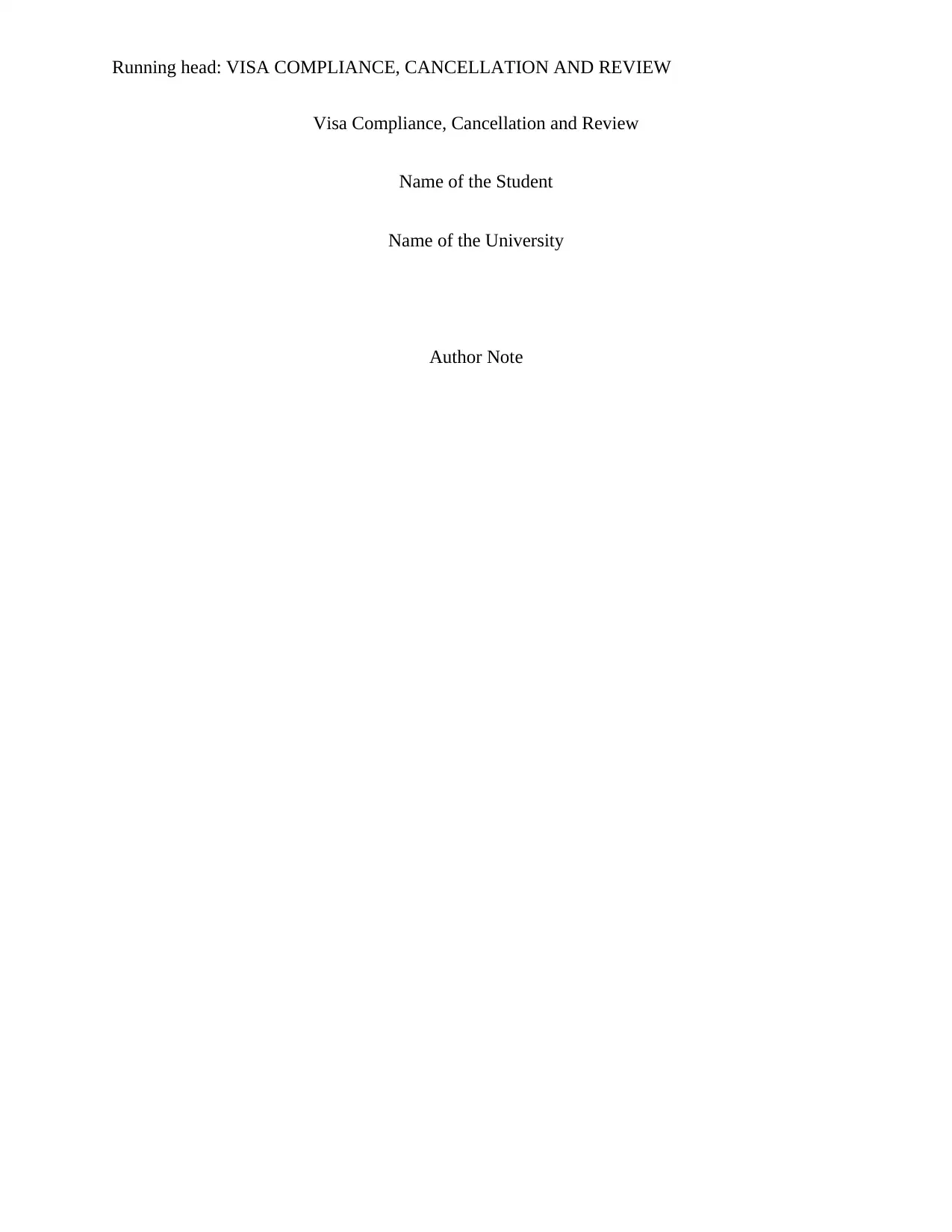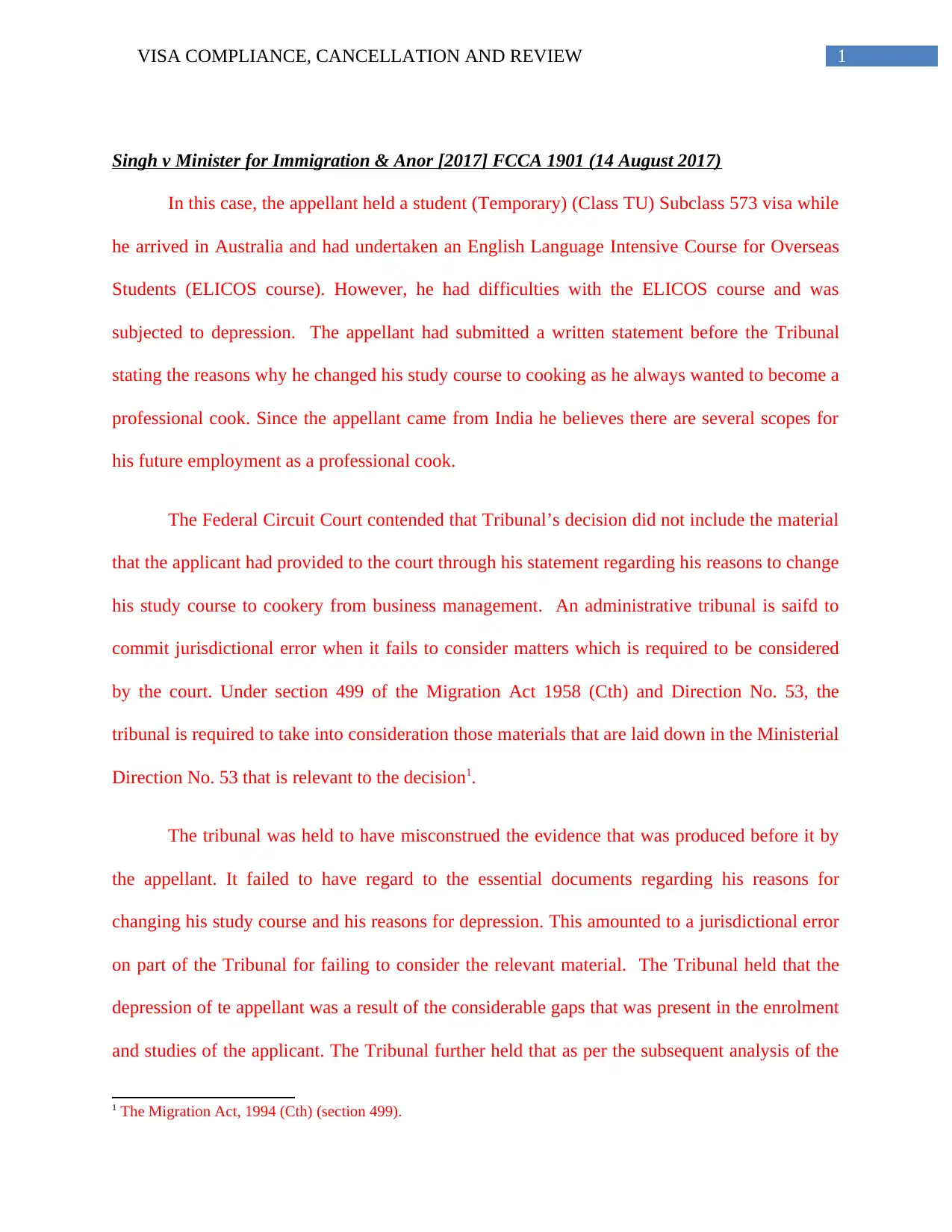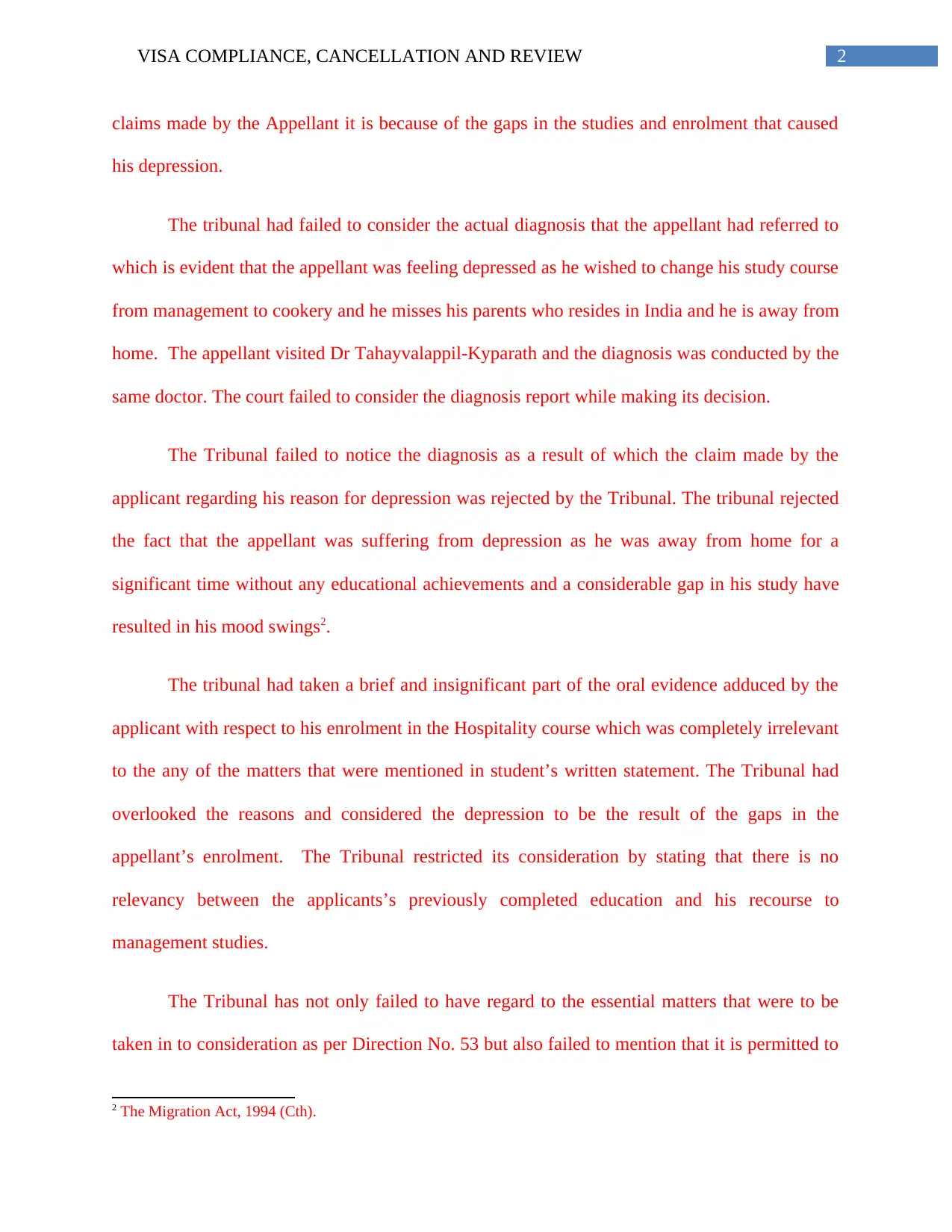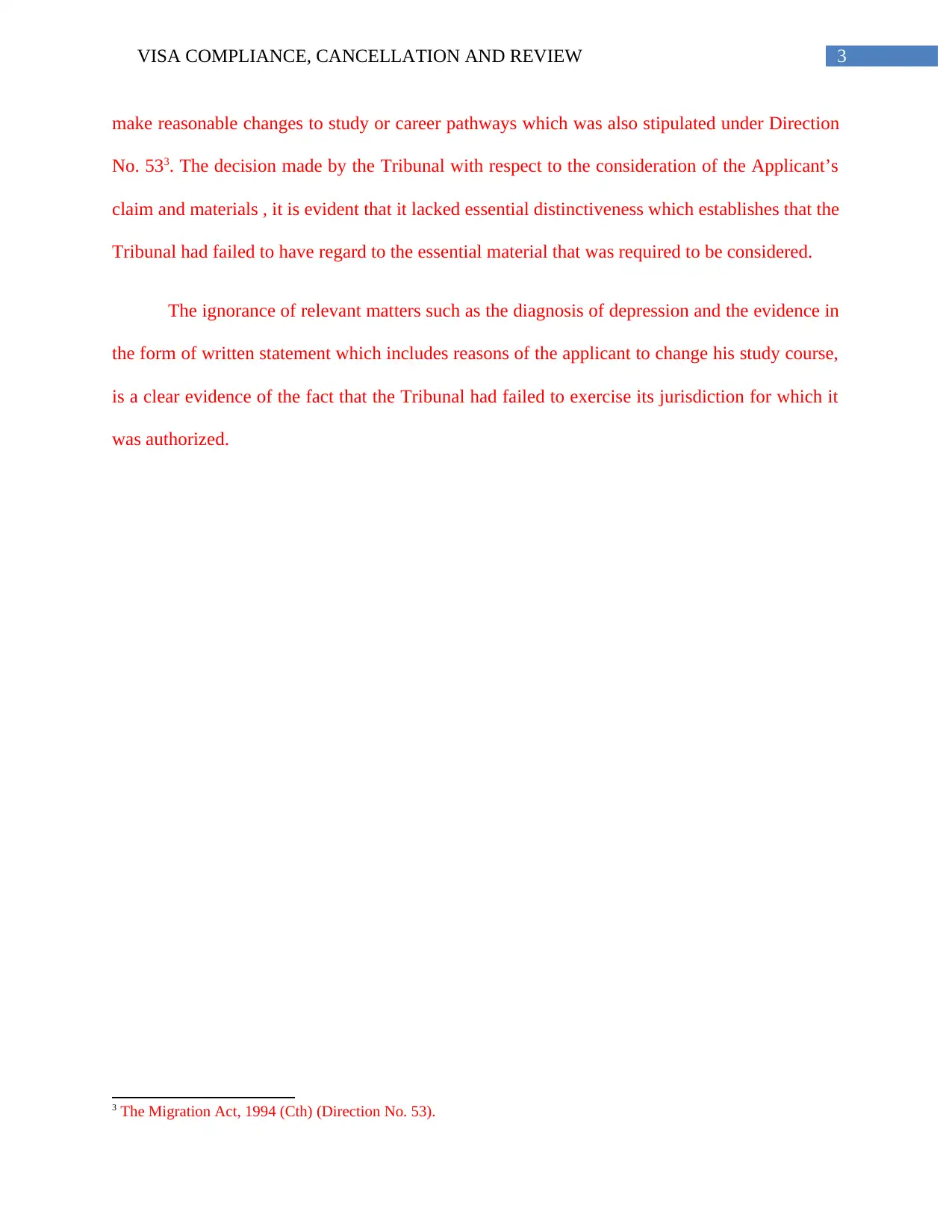Visa Compliance, Cancellation, and Review: Singh v Minister Case Study
VerifiedAdded on 2020/03/28
|5
|819
|159
Case Study
AI Summary
This case study examines the legal principles of visa compliance, cancellation, and review, focusing on the case of Singh v Minister for Immigration & Anor [2017] FCCA 1901. The appellant, a student on a Subclass 573 visa, faced visa issues due to difficulties with an ELICOS course and subsequent depression. The Federal Circuit Court found that the Tribunal committed a jurisdictional error by failing to consider relevant materials, including the appellant's written statement explaining his reasons for changing his study course to cookery and his diagnosis of depression. The Tribunal misconstrued evidence and overlooked essential documents, including the diagnosis report, which was a crucial factor in the appellant's claims. The court highlighted the Tribunal's failure to consider the appellant's mental health and the reasons behind his course change, as well as the provisions in Direction No. 53 permitting reasonable changes to study pathways. The decision underscores the importance of considering all relevant evidence and adhering to procedural fairness in visa-related cases, ultimately leading to the conclusion that the Tribunal failed to exercise its jurisdiction appropriately.
1 out of 5








![Case Study Analysis: Jurisdictional Error in Singh v Minister [2017]](/_next/image/?url=https%3A%2F%2Fdesklib.com%2Fmedia%2Fimages%2Fnt%2F784b3d6e2296413b84581e7ffabab491.jpg&w=256&q=75)



![[object Object]](/_next/static/media/star-bottom.7253800d.svg)